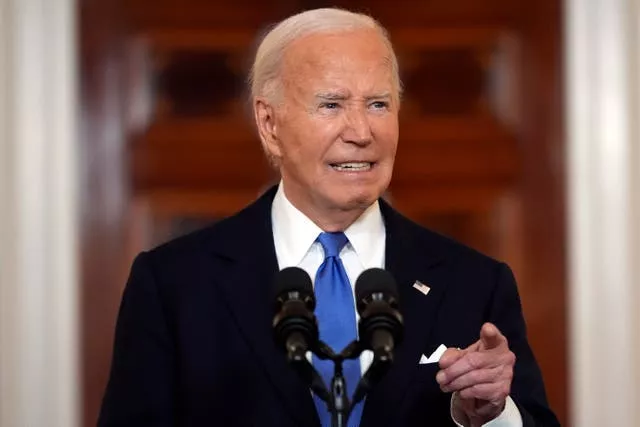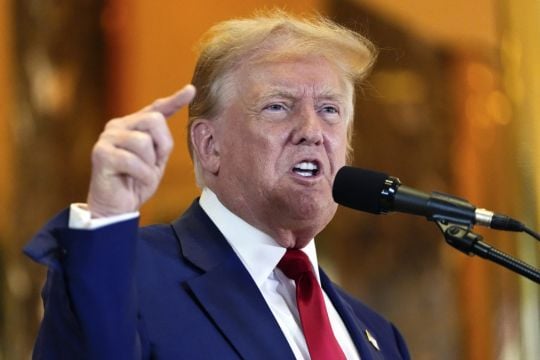US president Joe Biden said the US preme Court justices had set “a dangerous precedent” by ruling that former presidents have broad immunity from prosecution.
The ruling extended the delay in the Washington criminal case against Donald Trump on charges he plotted to overturn his 2020 presidential election loss and all but ended prospects the former president could be tried before the November election.
Lawyers for Mr Trump responded by asking the New York judge who presided over his hush money trial to set aside his conviction and delay his sentencing, which is scheduled for later this month.
In a 6-3 ruling, the court’s conservative majority, including the three justices appointed by Mr Trump, narrowed the case against him and returned it to the trial court to determine what is left of special counsel Jack Smith’s indictment.

Mr Biden said the justices set “a dangerous precedent (that) undermines the rule of this nation.”
Citing accepted restraints on presidential power dating back to George Washington, he bemoaned that “for all practical purposes, today’s decision almost certainly means that there are virtually no limits on what a president can do.”
Mr Trump posted in all capital letters on his social media network shortly after the decision was released: “Big win for our constitution and democracy. Proud to be an American!
Chief Justice John Roberts insisted the president “is not above the law”, but in a fiery dissent for the court’s three liberals, Justice Sonia Sotomayor wrote: “In every use of official power, the President is now a king above the law.”
The ruling found Mr Trump is “absolutely immune” from prosecution for alleged conduct involving discussions with the Justice Department.

He is also “at least presumptively immune” from allegations that he tried to pressure then vice president Mike Pence to reject certification of Mr Biden’s electoral vote win on January 6th, 2021.
Mr Roberts wrote that the prosecutor can try to make the case that the pressure on Mr Pence can still be part of the case against him.
Justice Roberts’ opinion further restricted prosecutors by prohibiting them from using official acts as evidence to prove that a president’s unofficial actions violated the law.
US District Judge Tanya Chutkan, who will preside over Trump’s trial, will decide how to proceed.
Mr Trump’s lawyers wrote to Judge Juan M Merchan, citing the Supreme Court’s ruling and asking for a delay in sentencing while he considers the high court’s decision and how it could influence the New York case.
The lawyers argue that the Supreme Court’s decision confirmed a position the defence raised earlier in the case that prosecutors should have been precluded from introducing some evidence they said constituted official presidential acts, according to the letter.
In prior court filings, Mr Trump contended he is immune from prosecution for conduct alleged to involve official acts during his tenure in office.
His lawyers did not raise that as a defence in the hush money case, but they argued that some evidence — including Trump’s social media posts about former lawyer Michael Cohen — comes from his time as president and should have been excluded from the trial because of immunity protections.
Mr Trump was convicted in New York of 34 counts of falsifying business records, arising from what prosecutors said was an attempt to cover up a hush money payment just before the 2016 presidential election.







